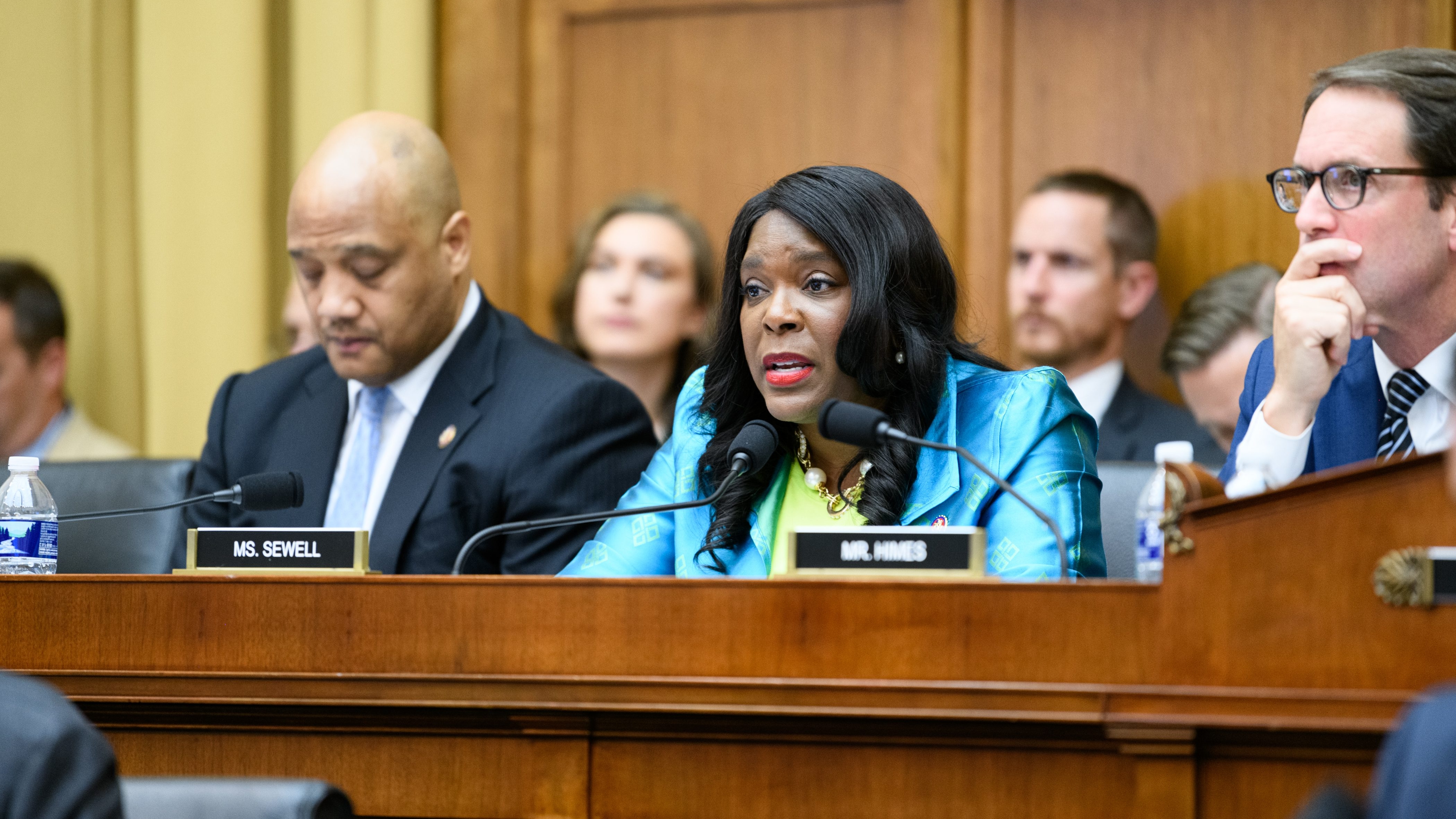U.S. Rep. Terri Sewell, AL-07, yesterday, voted to pass HR7900, the National Defense Authorization Act (NDAA) for Fiscal Year 2023. This legislation will provide a well-earned raise for Alabama service members, bolster America’s national security, fund research at HBCUs, and promote U.S. leadership on the global stage. Notably, Sewell secured $15 million for improvements to Maxwell Air Force Base and $6.8 million to construct a training facility for F-35 fighter planes at the Montgomery Regional Airport Base.
“I take seriously my responsibility to ensure that our brave service members have the resources they need to keep our nation safe,” said Rep. Sewell. “That’s why I was proud to cast my vote for the Fiscal Year 2023 National Defense Authorization Act. I’m particularly proud that this year’s NDAA delivers hard-earned pay raises to Alabama servicemembers and includes initiatives to support cutting-edge research at HBCUs.”
“I was thrilled to secure $15 million for improvements to Maxwell Air Force Base and $6.8 million to construct a training facility for F-35 fighter planes at the Montgomery Regional Airport Base,” continued Sewell.“This funding will continue to stimulate economic development in the region and help strengthen Alabama’s essential role in providing for our national defense.”
Passed annually by Congress since 1961, the NDAA authorizes funding levels for the Department of Defense. This legislation allows the Armed Forces to pay, train and equip U.S. service members; support America’s allies around the world; and carry out essential national security operations. With this year’s NDAA, House Democrats have advanced a range of key national security priorities:
- A well-earned raise for Alabama service members, including a 4.6 percent pay increase for uniformed and civilian personnel, 2.4 percent inflation bonuses for service members earning less than $45,000 per year and a $15 per hour minimum wage for federal contract workers.
- Support for the people of Ukraine, including $1 billion for the Ukraine Security Assistance Initiative (USAI) and additional efforts to reduce U.S. dependence on Russian energy.
- Resources for minority serving institutions, including more than $111 million in HBCU research funding and a pilot program to increase research capacity at MSIs.
- Investments in next-generation defense technology, including $275 million to fund advances in hypersonics, electronic warfare and artificial intelligence.
- Civilian harm mitigation measures, including the establishment of a Commission on Civilian Harm and a Center for Excellence in Civilian Harm Mitigation.
- Improvements to supply chain security, including an assessment of dual-use technology and strengthened risk management for pharmaceutical supply chains.
- Expanded cooperation with U.S. allies, including anti-trafficking and climate resilience efforts.
A summary of the provisions in this year’s NDAA is available here.




















































